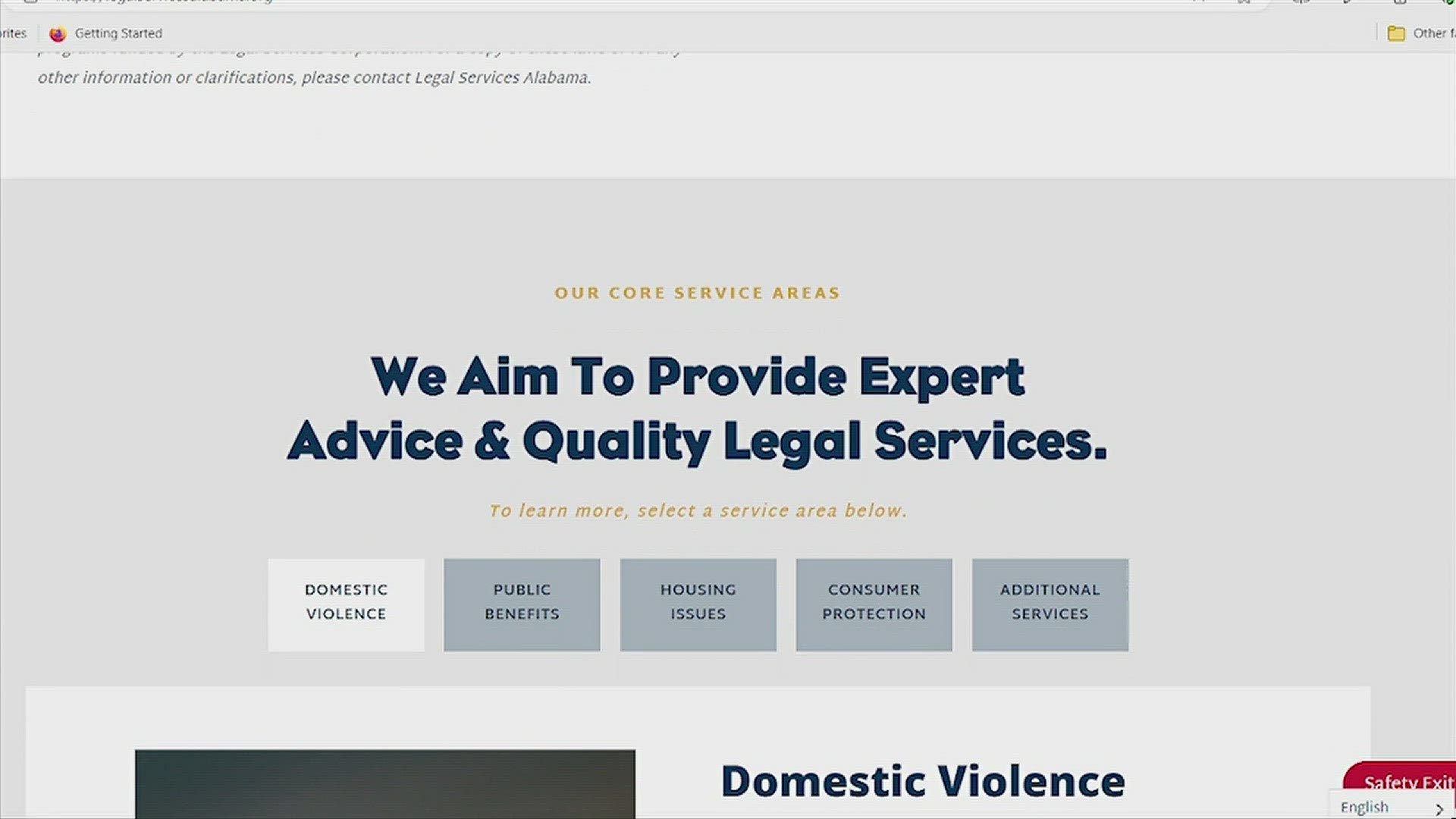HUNTSVILLE, Ala. — According to Executive Director for Legal Services of Alabama Guy Lescault, many Alabamians aren't aware of the legal services available to them. "We have 1 million people in Alabama who are eligible for free civil legal aid," Lescault shares. "That's based on a poverty guideline. It's really unacceptable that 20% of our population are below the poverty line and it's what we call the justice gap. there is no way, based on the funding we receive to meet the legal needs of the 1 million people eligible."
The need for more adequate resources for legal aid services here in Alabama is evident which is why Legal Services of Alabama is educating those in Washington on the need for more funding. "So, we have eight regional offices. We have a statewide call center that handle the 120,000 calls last year for service. That's an indicator of the need out there," Lescault shares. "The cases we primarily do are consumer housing, domestic violence, but we work closely with our veterans and our elderly populations. We had an opportunity to talk about the specific work we do and the demographics of the area that are covered by the congressional district. For example, in the fifth congressional district, the number of cases that we handled and the inquiries and the that are in that area. The Huntsville office covers 11 counties. That's a large population in the whole northern tier of Alabama."
Alabama Legal Services helped more than 37,000 Alabamans with legal cases in 2022, with housing being an issue in more than half of their cases. ALS is among 131 legal aid organizations around the country funded by Legal Services Corporation, which is celebrating its 50th anniversary.
Legal services help low-income residents who might otherwise not be able to afford legal services. "Huntsville's poverty rate is 14.6. it's higher than the national average of 12.6 and the largest demographic there are females in poverty aged 18 to 24," Lescault explains. "Interestingly enough, the most common racial or ethnic group of them below the poverty line in Huntsville are white women, followed by black and Hispanic. We, of course, serve all populations and, as I said, make an effort to get all of the 11 counties out of the Huntsville regional office to meet the service but it's challenging in the distance and it's challenging in the resources to enable us to cover the legal needs in all of those counties."
Lescault shares how the lack of funding affects cases they are able to take on. "We get 120,000 calls in the statewide call center. That's unsustainable and the natural response, is you should increase the number of people in the call center," Lescault explains. "Well, they would have to refer to attorneys to handle the problem and so without the adequate increase in funding to enable us to do the legal work, we're sort of limited in terms of the numbers that we can meet. Consequently, as it's referred to, is the justice gap, which shows that the difference between the number of cases that most people would have and our ability to meet is crippled by the lack of funding."

